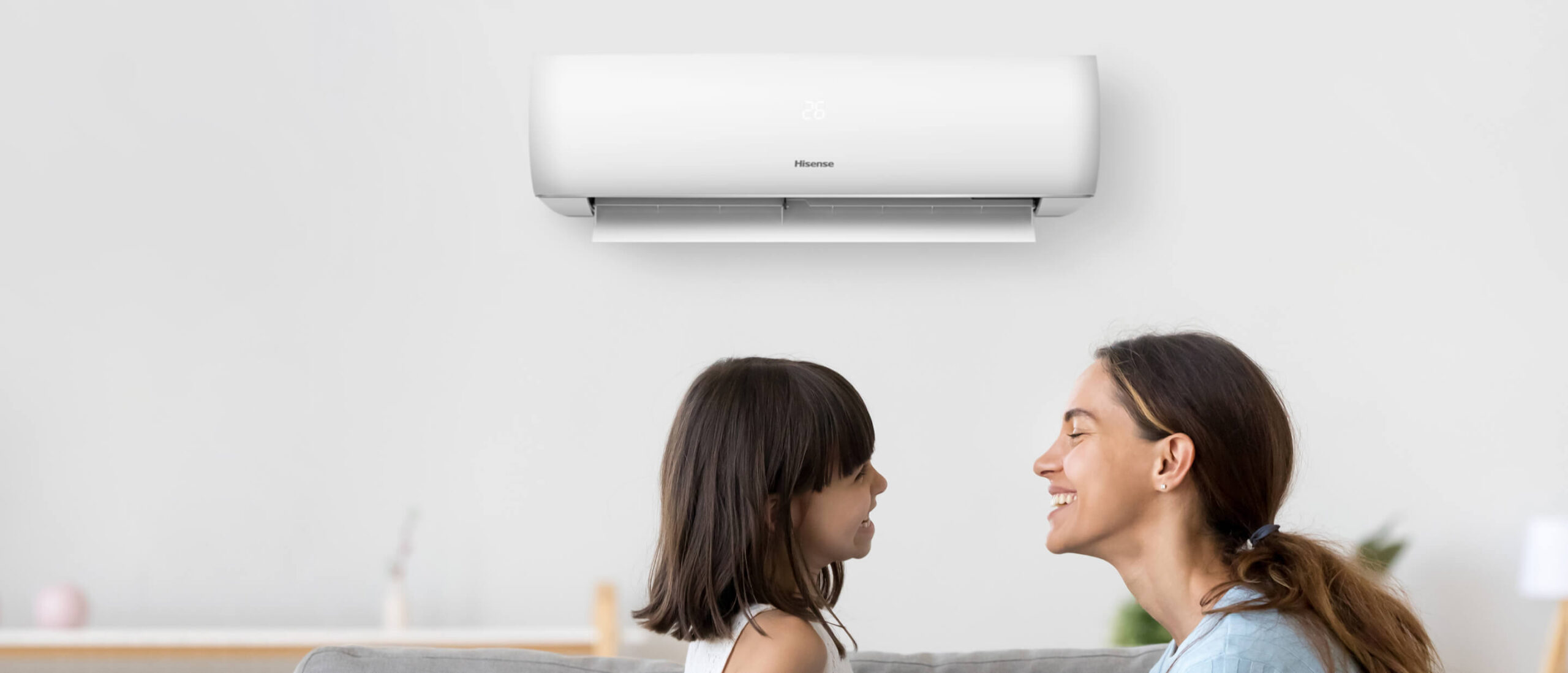23 September 2024
How Air Conditioners and Air Purifiers Benefit Asthma Sufferers
Asthma is a chronic condition that affects the airways in your lungs, making them more sensitive to various triggers. These triggers can cause the airways to become inflamed, swollen, and narrowed, leading to symptoms like trouble breathing, wheezing, chest tightness, and coughing.
As we transition into spring and storm season, a period known for its increase in pollen and sudden weather changes, managing asthma becomes even more critical. This is where having an air conditioner and air purifier can be highly beneficial for asthma sufferers.

Understanding Asthma Triggers
Asthma triggers vary from person to person and can include anything from cold and flu viruses, to smoke, exercise, and allergens like pollen or dust mites. For some, environmental factors such as weather changes and air quality play a significant role in triggering asthma symptoms.
Unfortunately, many of these triggers become more prevalent in the spring, particularly with the rise in pollen levels and the occurrence of thunderstorm asthma.

Each person with asthma may have different triggers, and some may be more sensitive to certain triggers than others. Identifying and minimising exposure to these triggers is crucial for managing asthma.
The Role of Air Conditioners and Air Purifiers
Both air conditioners and air purifiers can play a significant role in creating a safer indoor environment for asthma sufferers. Here’s how:
Air Conditioners:
- High humidity levels can contribute to the growth of mould and dust mites, both of which are common asthma triggers. Air conditioners help reduce indoor humidity, making the environment less hospitable to these allergens.
- Air conditioning systems come equipped with filters that can capture pollen, dust, and other particulates from the air, reducing the concentration of these asthma triggers indoors.
- Sudden changes in temperature can trigger asthma symptoms. Air conditioners help maintain a consistent and comfortable indoor temperature, reducing the risk of temperature-related asthma attacks.
- By keeping windows closed and using an air conditioner, you can minimise the entry of outdoor pollutants like pollen, vehicle exhaust, and smoke into your home.
Air Purifiers:
- Air purifiers are designed to filter out airborne allergens such as dust mites, pet hair, and mould spores. This can significantly reduce the number of asthma triggers present in your home.
- High-efficiency particulate air (HEPA) filters in air purifiers can trap fine particles, including those from smoke and pollution, which are known to exacerbate asthma symptoms.
- Air purifiers are equipped with activated carbon filters that can absorb odours and volatile organic compounds (VOCs), reducing the presence of asthma-triggering irritants.
- By continuously cycling and cleaning the air, air purifiers help maintain a higher quality of indoor air, making breathing easier and reducing the likelihood of asthma flare-ups.
For individuals with asthma, managing triggers is key to controlling symptoms and improving quality of life. Air conditioners and air purifiers are valuable tools in this effort, helping to create a cleaner, more controlled indoor environment. By reducing exposure to allergens, irritants, and sudden temperature changes, these devices can significantly lower the risk of asthma attacks and provide much-needed relief for those with this chronic condition.
